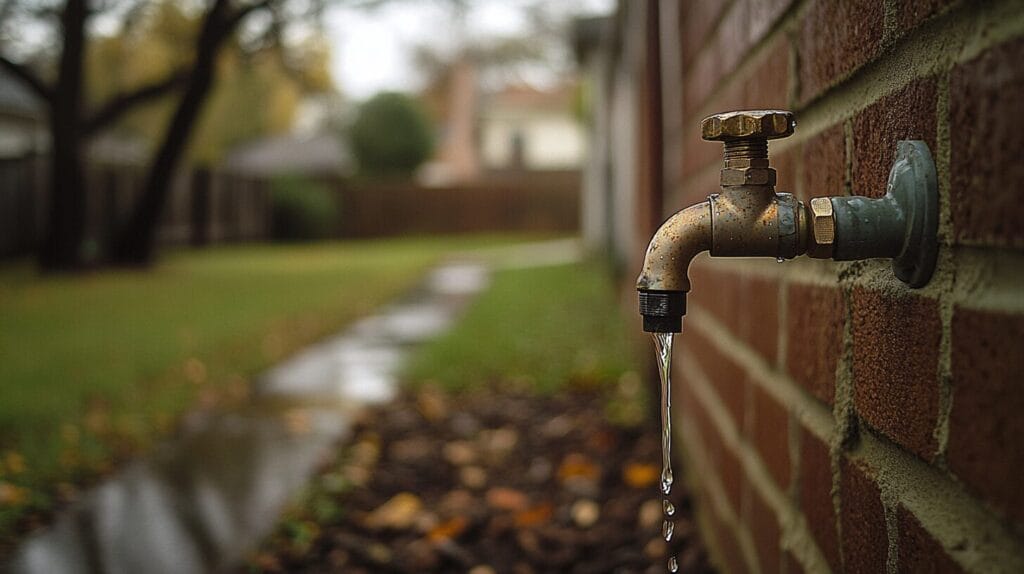
At Fitch Services, we know that conserving water isn’t just good for the environment—it’s smart for your home, too. The truth is, even small daily habits can have a huge effect on how much water your household uses. As a local company providing expert heating, cooling, plumbing, and electrical services in Charlottesville and Albemarle County, we see every day how minor improvements can lead to major savings.
Whether you’re looking to lower your water bill, reduce wear and tear on your home’s systems, or do your part to protect the planet, these ten simple changes can help you get there—one drop at a time.
1. Fix Leaks Right Away
A tiny leak may not seem like a big deal, but over time, those drops add up to gallons—sometimes hundreds. A dripping faucet or running toilet can waste significant amounts of water every day. Worse still, leaks in less visible places—like behind walls or underground—can go unnoticed for weeks or months. That’s especially true with leaks in your main water line, which can quietly waste thousands of gallons and even damage your property. If you notice unexpected puddles, lower water pressure, or an unexplained rise in your water bill, it’s time to investigate.
2. Turn Off the Tap While Brushing Your Teeth
It’s an easy habit to overlook—letting the water run while brushing your teeth. But this small action can waste 4 gallons or more every time you brush. Multiply that by how many times your household brushes each day, and you’re looking at thousands of gallons wasted every year. By simply turning off the tap until it’s time to rinse, you can make a noticeable difference. Teaching kids this habit early is a great way to create a lifelong awareness of water conservation.
3. Use Water-Efficient Plumbing Fixtures
Many homes in Charlottesville and Albemarle County still use older faucets, showerheads, and toilets that use more water than necessary. By upgrading to modern, low-flow plumbing fixtures, you can reduce your water use without sacrificing comfort or performance. These high-efficiency fixtures are designed to deliver strong water pressure while using significantly less water, making them a simple but effective way to improve your home’s efficiency and lower your utility bills.
4. Run Full Loads in Dishwashers and Washing Machines
It’s easy to hit the “start” button out of convenience, even if your dishwasher or washing machine isn’t full. But partial loads use nearly the same amount of water as full ones, making them far less efficient. Waiting until you have a full load can dramatically cut down on how much water your appliances use throughout the week. It’s a small scheduling shift that can lead to big savings over time—without any added cost.
5. Install a Water Softener
Homes in our region often deal with hard water, which contains high levels of calcium and magnesium. Over time, these minerals can build up in your pipes and reduce the efficiency of your appliances. They can also make soap and detergent less effective, leading to more water usage in showers and laundry. Installing water softeners can help protect your plumbing system, improve water quality, and even extend the life of your appliances. It’s a smart long-term investment that can prevent many water-wasting issues caused by mineral buildup.
6. Capture Rainwater for Outdoor Use
Charlottesville and Albemarle County get plenty of rainfall throughout the year, and you can use that to your advantage. By collecting rainwater in barrels connected to your downspouts, you can create a natural water source for gardens, lawns, or even washing outdoor tools. It’s a sustainable practice that lowers your dependence on tap water and eases the burden on your plumbing system during dry months. It also keeps stormwater runoff to a minimum, which is good for your local environment.
7. Use a Broom Instead of a Hose for Outdoor Cleaning
Spraying down your sidewalk, driveway, or patio with a hose may seem quick and easy—but it can waste dozens of gallons of water each time. Instead, grab a broom for light debris or use a blower for leaves and dust. It might take a few extra minutes, but the savings in water add up fast. Over a season, this one change can make a noticeable difference, especially during the summer when outdoor water usage spikes.
8. Take Shorter Showers
A long, hot shower can be relaxing, but it can also use a surprising amount of water. Reducing your shower time by just two or three minutes can save up to 150 gallons of water per month. If everyone in your household makes this change, the savings multiply. Installing a low-flow showerhead can further enhance this effort without compromising on water pressure. Pair this habit with music or a timer if you’re trying to make shorter showers part of your routine.
9. Water Plants Early or Late in the Day
Watering your lawn or garden during the hottest parts of the day means much of that water will evaporate before it reaches the roots. By watering in the early morning or evening, when the sun is lower, you help the water soak into the soil more effectively. This not only helps your plants thrive but also cuts down on the total amount of water you need to use. Adding mulch around plants can also help retain moisture and further reduce your watering needs.
10. Educate Your Household
Conserving water is easier when everyone is on the same page. Make it a family conversation and encourage each person to adopt a few simple habits. Kids can learn to turn off the tap, take shorter showers, or report drips when they see them. Adults can check for leaks and schedule routine maintenance. When your whole household works together, small changes can become powerful habits that not only help the environment but also keep your home’s plumbing system in better shape.
Frequently Asked Questions
1. How do I know if I have a leak in my main water line?
You might notice unusual wet spots in your yard, unexplained drops in water pressure, or higher-than-normal water bills. These can be signs of a hidden leak. It’s best to call a plumbing expert for a proper inspection.
2. Are water softeners worth it for homes in Charlottesville?
Yes. Hard water is common in this area and can lead to scale buildup, appliance wear, and inefficient cleaning. Water softeners help resolve these issues and improve overall water quality.
3. What’s the difference between low-flow fixtures and regular ones?
Low-flow fixtures are specially designed to use less water while maintaining strong performance. They can reduce water usage by up to 30%, making them a great upgrade for eco-conscious homeowners.
4. How often should I check my home for leaks?
It’s a good idea to check every couple of months. Look under sinks, around toilets, near your water heater, and any place you’ve noticed moisture or mold. Staying ahead of leaks helps prevent costly damage.
5. Can I install water-saving fixtures myself, or should I call a plumber?
Some fixtures are DIY-friendly, but for best results—especially in older homes or if you’re unsure about fit or water pressure—it’s wise to call a professional to make sure everything’s installed correctly.
Why It Matters
Reducing water waste isn’t just an environmental issue—it’s a home maintenance issue, too. Every gallon saved reduces wear on your appliances, pipes, and plumbing systems, all while lowering your monthly bills. Here in Charlottesville and Albemarle County, we’re lucky to have good infrastructure and quality water, but that doesn’t mean we should use it carelessly. By taking these small steps, you’re protecting your home and contributing to a larger community effort to use resources responsibly. At Fitch Services, we’re proud to support smart water habits through quality service, expert advice, and a deep understanding of local plumbing systems.





